Flavor Making
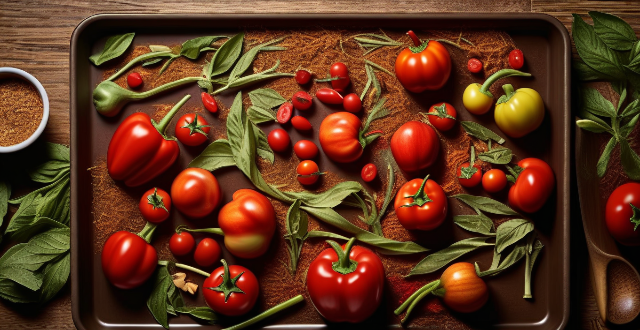
How can I recreate authentic Sichuan flavors at home without making it too spicy ?
To recreate authentic Sichuan flavors at home without making it too spicy, focus on understanding key flavor components like Ma La (numbing spice), hot and spicy, and sweet and fragrant. Select ingredients carefully, using moderately hot chili peppers and Sichuan peppercorns sparingly. Incorporate aromatics like garlic, ginger, and doubanjiang. Utilize cooking techniques such as toasting peppercorns, controlling heat with a mix of chili forms, balancing flavors, and tasting as you cook to adjust seasoning. Try making a classic Sichuan dish like Kung Pao Chicken with these tips in mind to achieve an authentic taste without overwhelming spiciness.
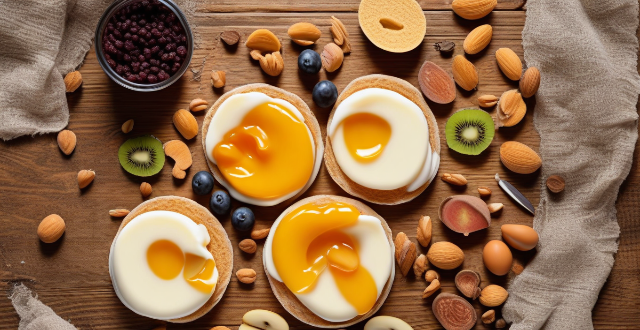
What are some gluten-free breakfast options that don't sacrifice flavor ?
Gluten-Free Breakfast Options that Don't Sacrifice Flavor: Gluten-free pancakes, oatmeal with fruits and nuts, egg dishes, smoothies, gluten-free cereals, and breads are all delicious and healthy breakfast options for those who are gluten-free.
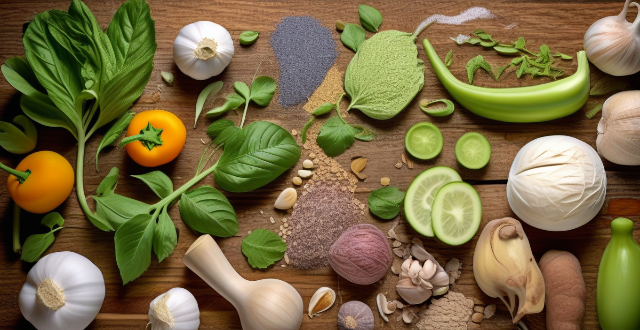
What ingredients are commonly used in Mexican cooking to create its unique flavor profile ?
The article provides an overview of the key ingredients used in Mexican cooking, including chili peppers like ancho, jalapeño, serrano, and habanero; herbs and spices such as cumin, coriander, oregano, and cilantro; and other ingredients like tomatoes, onions, garlic, lime juice, epazote, and hominy. It explains how these ingredients contribute to the distinctive flavor profile of Mexican cuisine and encourages readers to experiment with creating authentic Mexican meals at home.
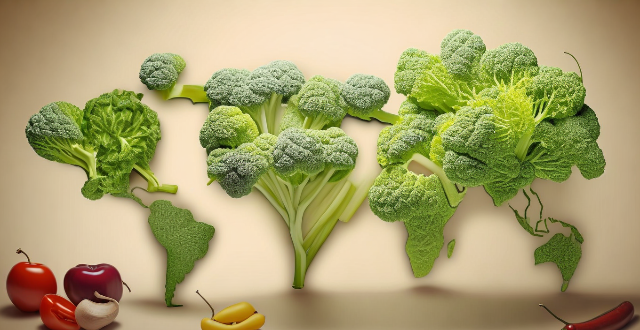
What role does cilantro play in Mexican cuisine in terms of flavor ?
Cilantro is a key herb in Mexican cuisine, adding flavor, aroma, and freshness to dishes. Its unique taste, described as citrusy, grassy, and slightly peppery, complements the bold and spicy flavors of Mexican cooking. Cilantro is used in salsas and guacamole, soups and stews, marinades and rubs, tacos and enchiladas. Its citrusy notes cut through rich ingredients, grassy undertones provide a refreshing contrast, and its peppery bite adds complexity. Cilantro is essential for enhancing the taste and aroma of Mexican dishes.

How do I get that restaurant-quality flavor in my homemade crab cakes ?
How to Achieve Restaurant-Quality Flavor in Homemade Crab Cakes: - Freshness and quality of ingredients are crucial. - Lump crabmeat is preferred for its sweet flavor and good texture. - Use a combination of seasonings like Old Bay, mustard, Worcestershire sauce, and hot sauce. - Bind the mixture with mayonnaise or mustard lightly. - Pan-fry or oven-bake the crab cakes for different textures. - Serve with remoulade sauce and sides like green salad or roasted vegetables. - Allow the crab cakes to rest before cooking and avoid overcrowding the pan.

What are some tips for making vegan desserts that everyone will love ?
To make vegan desserts that everyone will love, consider these tips: use natural sweeteners like maple syrup and agave nectar for rich flavor; incorporate nut butters such as almond and cashew for creaminess; experiment with flours like almond and oat for baking; add spices and extracts like vanilla and cinnamon for depth of flavor; utilize fruits like apples and bananas for natural sweetness; use dairy substitutes like coconut milk and almond milk for creamy textures; get creative with chocolate by using vegan brands or carob; and focus on texture by adding nuts, seeds, and dried fruits. By following these guidelines, you can create desserts that are not only vegan but also deliciously satisfying.

How can I make my favorite dishes vegetarian without sacrificing flavor ?
How to Make Your Favorite Dishes Vegetarian Without Sacrificing Flavor

How does the threat of climate change influence our cognitive processes and decision-making ?
The influence of climate change threat on cognitive processes and decision-making is significant. It can affect perception of risk, trigger emotional responses, and alter information processing. Additionally, it shifts priorities in decision-making, necessitates long-term planning, and requires collaboration among various stakeholders.
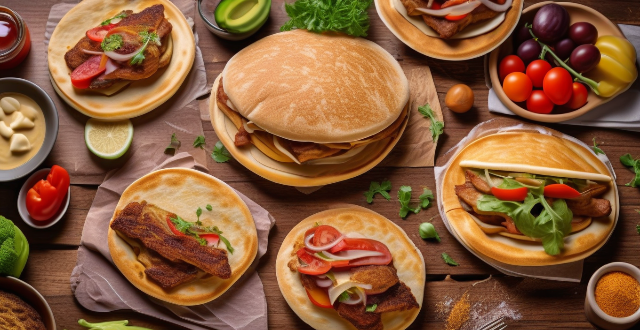
What makes the flavor of street tacos in Mexico different from those found elsewhere ?
The flavor of street tacos in Mexico differs from others due to authentic ingredients, traditional cooking methods, regional specialties, vibrant street food culture, and a variety of condiments.

How can I make my breakfast more colorful and visually appealing ?
How to Make Your Breakfast More Colorful and Visually Appealing: 1. Use fresh fruits and vegetables for color and nutrition. 2. Experiment with different grains and breads for texture and color. 3. Add spices and herbs for flavor and color. 4. Get creative with plating for visual appeal. 5. Incorporate edible flowers for beauty and flavor.

What is the secret to making soft and chewy brownies ?
The secret to making soft and chewy brownies involves using high-quality unsweetened chocolate, butter for tenderness, granulated sugar for chewiness, eggs for binding and structure, all-purpose flour for structure without toughness, cocoa powder for intensified chocolate flavor, and baking powder for leavening. Techniques include undermixing the batter, melting chocolate and butter together for smooth integration, baking at a lower temperature for a longer period to ensure even cooking, and avoiding overbaking. Add-ins like chocolate chips, nuts, or flavorings can enhance the experience. Key steps involve preheating the oven, mixing dry ingredients, melting chocolate and butter, combining wet ingredients, adding dry to wet, baking, cooling, and cutting. Tips for success include using room-temperature ingredients, avoiding overbaking, and letting the brownies rest before cutting.
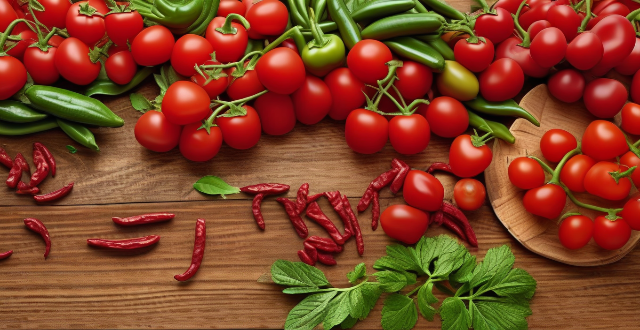
What are some traditional Mexican flavors ?
Mexican cuisine is known for its bold and vibrant flavors, which are a result of the country's rich history and diverse cultural influences. Some of the most traditional Mexican flavors include chili peppers, herbs and spices, fruits and vegetables, dairy products, and meats and seafood. These flavors come together to create the vibrant and delicious cuisine that Mexico is known for.

Can you provide a step-by-step guide for making bread at home ?
This step-by-step guide provides a comprehensive process for making bread at home, detailing the ingredients and tools required, as well as each stage of the bread-making process from proofing the yeast to baking. It emphasizes the importance of technique in kneading and rising, offers optional tips for enhancing texture, and concludes with instructions on how to bake and enjoy the homemade bread.

How can I make sure my paella has the right consistency and flavor ?
To ensure your paella has the right consistency and flavor, choose short-grain rice like Bomba or Calasparra, use fresh proteins and quality vegetables, cook with proper techniques including sofrito caramelization and correct liquid ratios, season well with salt and additional spices, let it rest before serving, and garnish with lemon wedges and parsley.

Can AI replace human decision-making in complex situations ?
Artificial intelligence (AI) has made significant strides in recent years, leading to discussions about its potential to replace human decision-making in complex situations. While AI possesses certain advantages, such as speed and accuracy, it still faces limitations that prevent it from fully replacing humans in decision-making processes. Advantages of AI in decision-making include speed and efficiency, accuracy and consistency, and scalability. However, AI also has limitations such as lack of creativity, ethical considerations, and interpretability. Examples of complex situations where AI may not replace human decision-making include medical diagnosis, legal judgments, and business strategy. In conclusion, while AI has the potential to assist humans in decision-making processes, it cannot fully replace them in complex situations. The combination of AI's analytical capabilities and human creativity, ethics, and intuition will likely lead to better outcomes in these scenarios.
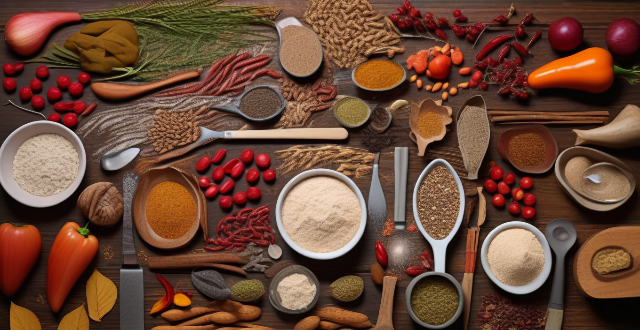
What is the significance of spices in Indian cooking ?
The significance of spices in Indian cooking is multifaceted, encompassing flavor enhancement, cultural traditions, and medicinal benefits. Key spices like turmeric, cumin, coriander, mustard seeds, fenugreek, red chili powder, garam masala, curry leaves, asafoetida, and tamarind contribute to the complex flavor profiles characteristic of Indian cuisine. These spices are used through techniques such as tempering, grinding, and roasting to create a balance of tastes and visual appeal. Historically, spices were valuable commodities in trade and are integral to traditional medicine and religious practices. Regional variations in spice use reflect India's diverse geography and cultural heritage. Understanding the nuances of spice usage allows for a deeper appreciation of the artistry behind Indian dishes.
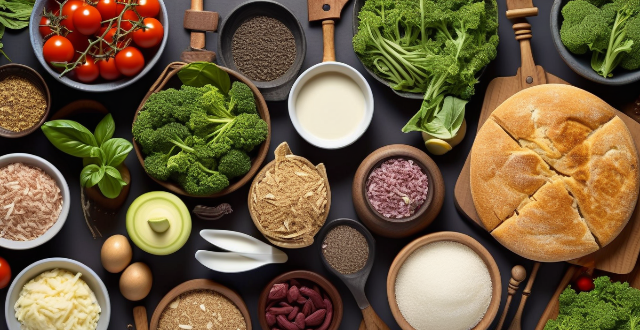
How can I spice up my usual home-cooked meals with new flavors ?
To spice up your usual home-cooked meals, try using fresh herbs and spices, exploring global flavors, incorporating acids and sweetness, and adding textures and garnishes.

Can climate information sharing lead to better policy making ?
Climate change is a pressing issue that requires informed policymaking. Climate information sharing can improve decision-making, collaboration, and transparency in the policy process. However, challenges such as data quality, accessibility, and coordination must be addressed to ensure effective information sharing. Overcoming these challenges can lead to better policies that address climate change.
![What are the best places to eat like a local in [insert city/country] ?](/images/2kge/2befbfac-8832-4928-9125-7d71418d7604.png)
What are the best places to eat like a local in [insert city/country] ?
In this guide, we explore the best places to eat like a local in [insert city/country], from street food vendors and hole-in-the-wall restaurants to bustling markets and bazaars. These spots offer authentic flavors and a taste of the local culture, making them must-visit destinations for anyone looking to truly experience the local cuisine. Whether you're in the mood for fresh seafood or bold flavors, there's sure to be something that satisfies your cravings. So come hungry and get ready to indulge in some delicious local fare!

What are some tips for balancing sweet and sour flavors in cocktails ?
"Balancing Sweet and Sour Flavors in Cocktails: Tips and Tricks for Crafting Perfect Drinks"

How can we promote gender equality in climate policy making ?
Promoting gender equality in climate policy making is crucial for ensuring inclusive policies that address the needs of all genders and harness the potential of everyone in combating climate change. Key strategies include ensuring equal representation of men and women at all levels of decision-making, addressing gender-specific impacts of climate change, promoting education and training, collaborating with women's organizations, and creating safe spaces for open expression. By implementing these measures, we can move towards more effective and equitable solutions to tackle climate change.

How can I use bitters to enhance my cocktail recipes ?
Bitters are a crucial ingredient in many cocktails, adding depth and complexity to the flavors. Here's how you can use them to enhance your cocktail recipes: Understanding Bitters: Bitters are concentrated alcoholic extracts made from herbs, spices, fruits, and other botanicals. They are typically used in small amounts to add a subtle, aromatic flavor to cocktails. There are several types of bitters available, each with its own unique flavor profile. Using Bitters in Cocktails: Here are some tips for using bitters in your cocktail recipes: start small, experiment with flavor combinations, use as a garnish, and create your own bitters. Overall, using bitters is an easy way to elevate your cocktail game and create unique, complex flavors that will impress your guests.

What are the advantages of using a slow cooker in the kitchen ?
The text discusses the advantages of using a slow cooker in the kitchen, which include convenience, energy efficiency, flavor intensification, healthier cooking methods, versatility, cost-effectiveness, and safety. Slow cookers offer a "set it and forget it" approach, use less electricity than conventional ovens or stovetops, allow flavors to meld together more thoroughly, require minimal fat use, are versatile for one-pot meals, can use economical cuts of meat, have cool touch surfaces for safety, and do not involve open flames. Incorporating a slow cooker into your culinary toolkit can lead to delicious, hassle-free meals.

What are some essential bartending skills for making great cocktails ?
Bartending involves a blend of technical skills, creativity, and customer service. Essential abilities include knowledge of spirits, mixology techniques, glassware selection, speed & efficiency, customer service, creativity & innovation, hygiene & safety, and teamwork. Mastering these skills elevates bartenders' performance, resulting in fantastic cocktails and an enhanced experience for guests.

What role should public opinion play in climate decision-making ?
The text discusses the importance of public opinion in climate decision-making, emphasizing that it can influence policymakers, shape public discourse, and drive action towards addressing climate change. The author outlines ways to influence public opinion, such as education, advocacy, media, and personal action.

What's the best way to infuse alcohol with fruits or spices ?
Infusing alcohol with fruits or spices is a great way to add flavor and complexity to your drinks. Here are the steps to do it right: Materials Needed: - Alcohol of your choice (vodka, rum, gin, etc.) - Fresh or dried fruits/spices - Clean glass jar or bottle with a tight-fitting lid - Fine mesh strainer or cheesecloth - Funnel (optional) Steps to Infuse Alcohol: 1. Choose Your Ingredients: Pick high-quality fruits and spices that complement the flavor profile of your chosen alcohol. Popular combinations include vodka with citrus fruits or jalapeño, rum with tropical fruits or cinnamon, and gin with juniper berries or lavender. 2. Prepare Your Ingredients: Wash and chop fresh fruits into small pieces. For spices, use whole spices like cinnamon sticks or crush them slightly to release more flavor. Dried fruits can be used as they are. 3. Infusion Process: Fill your clean glass jar or bottle with the prepared fruits/spices, leaving about 1/4 of the container empty at the top. Pour in the alcohol until the fruits/spices are fully submerged. 4. Seal and Shake: Close the jar tightly and shake well. Store it in a cool, dark place, shaking it occasionally over the next few days to help release the flavors. 5. Taste Testing: After about 3-5 days, taste your infusion. If it's not strong enough, reseal and let it sit for a few more days. The longer it sits, the more intense the flavor will become. 6. Straining and Bottling: When you're satisfied with the flavor, strain the mixture through a fine mesh strainer or cheesecloth into a clean jar or bottle. Use a funnel to transfer it without spilling. 7. Enjoy! Your homemade infused alcohol is now ready to be enjoyed in various cocktails or served neat over ice. Remember, the quality of your ingredients matters greatly. Always use fresh fruits and high-quality alcohol for the best results. Cheers!

How can I incorporate more plant-based meals into my family's diet ?
Incorporating more plant-based meals into your family's diet can lead to improved health, weight management, and a reduced environmental impact. Here's how to do it: 1. **Understand the Benefits**: Improved health, weight management, and environmental sustainability are key advantages of a plant-based diet. 2. **Gradual Transition**: Start by replacing one or two meals per week with plant-based options to ease your family into the change. 3. **Meal Ideas**: Try Meatless Mondays, vegetable-centric dinners, and incorporating plant-based proteins like tofu and beans. 4. **Involve Your Family**: Get your family excited about the change by letting them choose recipes and shop for ingredients. 5. **Shopping Tips**: Buy fresh produce, stock up on staples like grains and legumes, and experiment with new foods. 6. **Education and Resources**: Use online resources like websites, YouTube channels, and cookbooks to learn about plant-based eating. 7. **Meal Planning and Preparation**: Plan weekly meals, consider batch cooking, and get creative with leftovers. 8. **Emphasize Flavor and Creativity**: Use herbs, spices, marinades, and sauces to add flavor, and don't be afraid to experiment with different cooking techniques.

How do I properly season my stir-fry dishes ?
When it comes to stir-fry dishes, seasoning is key to achieving that perfect balance of flavors. Here are some tips on how to properly season your stir-fry dishes: 1. Choose the right ingredients: Select fresh vegetables and proteins that will complement each other in terms of flavor and texture. 2. Use a variety of sauces and spices: Experiment with different sauces and spices to find the perfect combination for your dish. 3. Balance sweet, sour, salty, and spicy flavors: A good stir-fry should have a balance of these four flavors. 4. Cook in batches and use high heat: Cook your ingredients in batches over high heat to ensure even cooking and maximum flavor. 5. Taste and adjust as needed: Taste your stir-fry as you go and adjust the seasoning as needed.
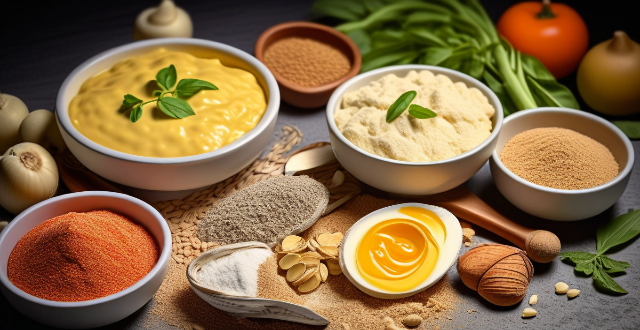
What are the key ingredients in Indian cooking ?
Indian cuisine is known for its rich flavors and diverse dishes. The key ingredients that make Indian cooking unique are spices, herbs, ghee, lentils, rice, yogurt, nuts and seeds, and bread. These ingredients add flavor, color, and aroma to the dishes and create authentic and delicious Indian cuisine.